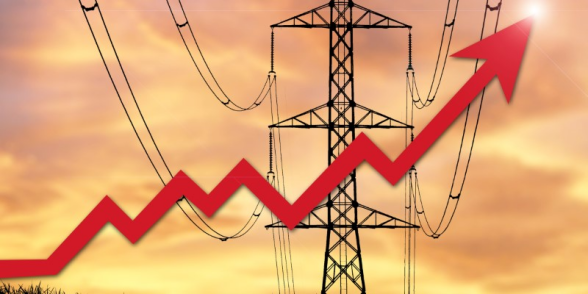In recent years, supply disruptions, especially in the energy industry, have been among the major contributors to market instability. As political instability, pandemics, and shifting geopolitics disrupt supply chains, energy markets have experienced sharp swings. Western energy stocks, representing companies across North America and Europe, have emerged as critical players. They have taken advantage of these shocks, benefiting from higher demand and prices. This article delves into how global supply shocks affect energy markets and how certain Western energy stocks thrive in these uncertain conditions.
Impact Of Global Supply Shocks On Energy Markets
Global supply shocks have had far-reaching consequences across the energy landscape, often driven by geopolitical crises or sudden changes in demand patterns. The COVID-19 pandemic was one of the most significant recent disruptions. It triggered a sudden collapse in demand, followed by a rapid recovery, causing supply chains to scramble to keep up. Energy companies, particularly in oil and gas, had to adjust their production strategies as prices fluctuated dramatically.

Beyond pandemics, political conflicts have had a significant role. The war in Ukraine, for instance, led to sanctions on Russian energy exports, forcing Europe to seek alternative sources of oil and natural gas. This sudden pivot away from Russian supplies created a massive demand for North American and other Western energy companies that could fill the void. The result was a surge in energy prices and, with it, the profitability of Western energy stocks.
Moreover, supply chain disruptions have spotlighted energy markets' vulnerabilities, showing many countries' reliance on a few major suppliers. As countries seek to diversify their energy sources, Western companies with access to vast natural resources and sophisticated infrastructure have gained prominence. This environment has created the perfect storm for certain energy stocks to surge in value.
Key Western Energy Stocks Benefiting From Supply Disruptions
Several Western energy companies have positioned themselves to benefit from these supply chain disruptions. With their vast resources, resilient supply chains, and market agility, these companies have thrived amid volatility.
Chevron Corporation
Chevron, a leading U.S. oil and gas company, has maintained stable production and benefited from rising energy prices amid global supply shocks. With Europe diversifying from Russian energy, Chevron's ability to meet demand has boosted revenue and market share, supported by a diversified portfolio of conventional and unconventional oil.

ExxonMobil
ExxonMobil, a U.S.-based energy giant, capitalized on recent supply shocks by leveraging its global infrastructure to fill gaps left by reduced Russian energy. Its significant investments in liquefied natural gas (LNG) positioned the company as a crucial supplier, mainly for European nations seeking alternatives to Russian gas.
BP And Shell
British energy giants BP and Shell have capitalized on Europe's increased energy demand following sanctions on Russia. Their extensive oil, gas, and LNG operations, combined with early investments in renewables like hydrogen and wind energy, position them for immediate gains and long-term success in the evolving energy market.
ConocoPhillips
ConocoPhillips has capitalized on supply shocks, especially in natural gas, by expanding its presence in the LNG market. With Europe shifting away from Russian gas, its strategic North American position and investments in new technologies have strengthened its industry standing amid ongoing market volatility.

The Role Of Renewable Energy In Stabilizing Supply Chains
While fossil fuel companies have reaped the rewards of supply shocks, renewable energy's importance in stabilizing global supply chains cannot be overlooked. Renewable energy companies are increasingly pivoting in diversifying energy sources, reducing reliance on unstable geopolitical regions, and promoting energy independence.
Wind And Solar Energy Companies
Wind and solar energy companies, like NextEra Energy and Orsted, are expanding capacity with government incentives and long-term contracts. They play a crucial role in Europe's energy independence, offering stable energy supplies that reduce reliance on imported fuels and help stabilize supply chains. However, they can't fully replace fossil fuels yet.
Hydrogen And Battery Technologies
Hydrogen and battery technologies are emerging as key players in the energy market, with companies like Plug Power and Tesla advancing renewable energy storage solutions. As these technologies improve, they are expected to stabilize energy markets and create new investment opportunities, particularly in hard-to-decarbonize sectors like heavy industry and transportation.

Future Outlook: Can Western Energy Stocks Maintain Their Momentum?
The big question for investors and analysts is whether Western energy stocks can maintain their momentum in the long term. The answer depends on several factors, including geopolitical stability, global demand for energy, and the pace of the renewable energy transition.
The Shift Towards Renewable Energy
One of the most significant long-term challenges for traditional oil and gas companies is the global shift toward renewable energy. As governments implement stricter climate policies and invest in renewable infrastructure, the demand for fossil fuels may gradually decline. However, this transition will take time. Fossil fuels will still be needed to bridge the gap during the shift to renewable energy, giving oil and gas companies room to manoeuvre in the short to medium term.
Ongoing Geopolitical Tensions
Geopolitical instability remains a crucial driver for energy stocks. As long as tensions in energy-rich regions persist, supply disruptions will likely continue, benefiting companies with diversified and stable supply chains. With their robust infrastructures and access to varied resources, Western energy companies are well-positioned to weather these storms. However, if peace and stability are restored in critical regions like the Middle East and Eastern Europe, the current high prices for oil and gas may stabilize or even decline.
Investment In Energy Security
Finally, Western energy companies are likely to benefit from increased investments in energy security by governments and private investors. The recent supply shocks have made it clear that energy independence is not just an environmental issue but a matter of national security. This recognition will likely lead to more investments in traditional energy sources and renewables, creating a diversified market in which oil and gas and renewables can thrive.

Conclusion
Western energy stocks have emerged as critical beneficiaries amid global supply shocks, with companies like Chevron, ExxonMobil, and BP playing pivotal roles in filling gaps left by disruptions in the worldwide supply chain. While these stocks have experienced significant growth in recent years, the future will depend on the transition to renewable energy, geopolitical stability, and investments in energy security. As renewable energy continues to play a growing role in stabilizing supply chains, the outlook for Western energy stocks remains cautiously optimistic.


